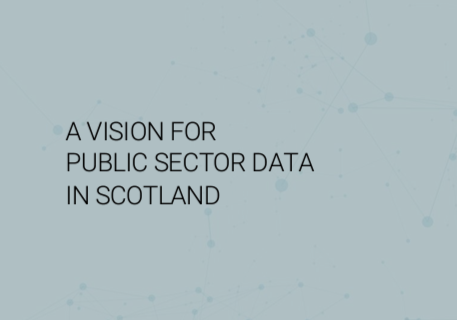Which UK cities are leading the AI revolution?
According to government statistics, the UK’s AI sector contributes over £3.7 billion annually and is projected to exceed $1 trillion by 2035.
The government’s National AI Strategy and a £1.1 billion investment in AI education are positioning the UK as an 'AI superpower. But which cities are best prepared to lead this revolution?
The SAS AI Cities Index 2024 identifies the most AI-ready locations across the UK, ranking cities and London boroughs based on key indicators such as AI companies, university courses, job opportunities, and InnovateUK funding.
Manchester: the AI capital of the UK
 For the first time, Manchester has taken the top spot as the UK’s most AI-ready city. Home to the largest number of AI-related companies outside London and a vibrant calendar of technology events, Manchester is a hub of innovation.
For the first time, Manchester has taken the top spot as the UK’s most AI-ready city. Home to the largest number of AI-related companies outside London and a vibrant calendar of technology events, Manchester is a hub of innovation.
With over 350 job openings in data science and AI, the city provides extensive career opportunities in these fast-growing fields.
Manchester’s achievements extend beyond industry. The city recently launched the Manchester Prize, a £1 million annual award for public good AI solutions, and Manchester United has partnered with Manchester Metropolitan University to use AI for enhancing player performance. It’s fitting recognition for the birthplace of the world’s first electronic stored-programme computer, built at the University of Manchester.
Other Leading Cities
-
Birmingham: Ranked second, Birmingham stands out for its educational ecosystem, offering the highest number of AI-related university courses in the UK. InnovateUK funding averaging £1.4 million per business highlights its attractiveness for AI-driven enterprises.
-
Salford: Surging 68 places to third, Salford’s rise is fuelled by exceptional InnovateUK investments, with businesses receiving an average of £14 million. This illustrates the transformative impact of targeted funding.
-
Edinburgh: Last year’s leader dropped to ninth due to a decline in job openings, but it remains a significant AI hub with over 200 related businesses and an active hackathon scene.
Rising AI cities
The index also highlights smaller cities that have made significant progress, demonstrating that AI readiness isn’t confined to large metropolitan areas.
 Southend-on-Sea: Rising 34 places, Southend is one of the most improved locations. Its ascent reflects growing investments in education and technology that are enabling this coastal city to compete with larger urban centres.
Southend-on-Sea: Rising 34 places, Southend is one of the most improved locations. Its ascent reflects growing investments in education and technology that are enabling this coastal city to compete with larger urban centres.
Winchester: Up 36 places, Winchester is benefiting from increased search demand for AI solutions and an expanded focus on hackathons to build local skills.
St Albans: Climbing 28 places, St Albans reflects the growing prominence of smaller cities investing in AI infrastructure.
Other notable risers include Bradford and Wrexham, both gaining 24 places, and Wolverhampton, moving up 26 spots, highlighting how smaller cities are embracing AI as a driver of local economic growth.
In London, Camden emerged as the most AI-ready borough, bolstered by £84 million in InnovateUK funding and a new AI-focused campus developed with Google. Westminster and Southwark also performed well, offering a mix of university courses and thriving AI ecosystems.
Not all cities are keeping pace with the AI revolution. Locations like Truro, Newry, and Bangor face limited access to AI-related education and resources, risking deeper regional disparities. Many of these cities struggle with the lingering effects of historical industrial decline, making targeted interventions essential.
The importance of AI readiness
AI readiness drives economic growth but comes with challenges, such as a national skills shortage affecting 80% of UK organisations. While Manchester, Birmingham, and Salford thrive, regional inequalities could widen without focused support for smaller and less urban areas.
Generative AI, used by 18 million people in the UK, is adding another layer of complexity and opportunity. Companies like PwC are incorporating tools like ChatGPT Enterprise, emphasising the need for widespread digital literacy to ensure inclusivity in AI advancements.






